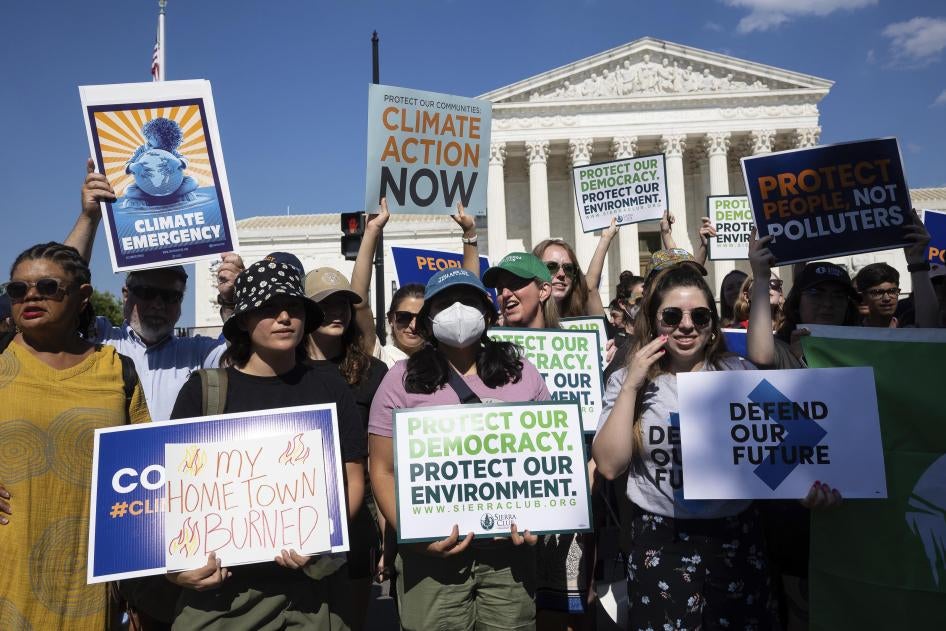In a significant setback for climate action, the United States Supreme Court ruled yesterday to limit the Environmental Protection Agency’s (EPA) ability to restrict greenhouse gas emissions from power plants.
The ruling prevents the EPA from using its authority under the Clean Air Act of 1970 to set requirements that shift the country’s energy production from higher-emitting sources of greenhouse gas, like coal, to lower-emitting sources, including wind and solar. Electricity production is responsible for a quarter of all greenhouse gas emissions in the US, making it a significant contributor to climate change.
In the 6-to-3 decision, the majority justifies limiting the EPA’s ability to regulate emissions across the energy sector by stating, “A decision of such magnitude and consequence rests with Congress itself, or an agency acting pursuant to a clear delegation from that representative body.” But, for decades Congress has failed to pass any major legislation to curb greenhouse gas emissions and protect the climate.
The opinion comes just weeks after millions in the US were exposed to record high temperatures, wildfires, and flooding, which will occur more frequently as the climate crisis worsens. The US is currently the second-largest global greenhouse gas emitter, but is, historically, the largest contributor to the climate crisis, which is particularly impacting those with low incomes as well as Black, Indigenous, and other people of color, exacerbating existing structural inequities.
While the Supreme Court’s ruling takes away an important tool for the EPA to regulate high-emitting coal and gas power plants, the US government can still adopt much-needed climate action.
Notably, the ruling does not prevent the EPA from taking other critical steps to mitigate the climate crisis, including regulating greenhouse gas emissions from new power plants and emissions from motor vehicles, as well as toxic pollutants, like mercury, which are released from power plants.
The EPA should make full use of those means within its remaining authority to protect the public’s human rights.










